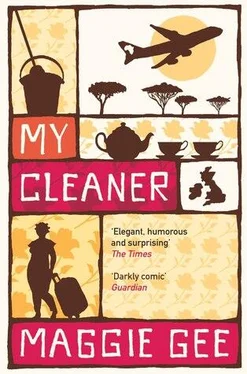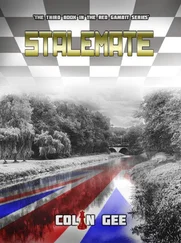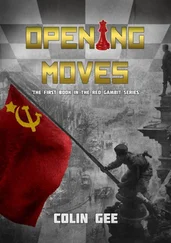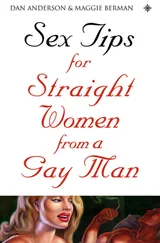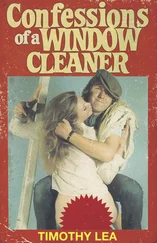Mary stubs out her cigarette in the grass. She has tried not to listen to what Trevor says. She does not intend to feel sorry for Vanessa. She remembers his advice and weeds with vigour, pulling up the cosmoses, the seeded delphiniums, the dull-leaved peonies, the Nerine lilies, but leaves the splendid pink spires of willow-herb, which she has never seen before.
“Miss Henman always wanted Justin to be clever,” she says, after a while, thoughtfully. “Perhaps this is why he was always studying, at this class, or that class, or doing his homework. Sometimes I thought his head would burst.”
“Well, maybe it did,” Trevor replies. “Maybe that’s just what happened to the lad. But you, Mary, are a sensible woman. You just carry on the way you’re going. And let me know if I can help you out.”
Mary knows at once how she wants him to help her. “First, you must help me to print my writing.”
“Blimey, you’re not another writer.” Trevor is joking, but Mary doesn’t laugh.
“Yes, so you must find me a printer. Next, tell me everything about London wages.”
“Do you mean, for a cleaner?”
“I am not her cleaner.”
She goes into the house and returns with a notebook, and listens attentively, and writes it all down.
Mary rings on the door as loudly as she can, to hide the nervousness she feels. Canaan Gardens is smart, in an expensive part of London, though the door itself is scruffy, with several bells beside it. It is number 20, which she thinks is right. Today November feels like winter; she knows she must go and buy more warm clothes — in Uganda, of course, she did not need them — but Mary is waiting for her next week’s money. In fact, her money seems to go quite quickly, once she has topped up the credit on her mobile, which she finally found in Justin’s room, and bought relaxer for her hair, and cocoa butter, all of which cost five times what they would in Uganda, and sent money to her sister through Western Union, though the notes in her bedroom are still mounting up, the delicious little stack is getting thicker.
Perhaps it is the cold that makes her feel sick. Since she came to London, she has often felt sick. Perhaps it is the grey cloud that hangs over London. It must be heaving with dirt and pollution. And perhaps Mary ate too much English porridge before she went to church this morning. She has started cooking it for her and Justin, since Vanessa told her it was ‘energising’. Because it is true, the Henman has energy, always running everywhere, upstairs and downstairs, and being bossy, and doing her sit-ups, quite unpredictably, anywhere, so that Mary opens doors and steps on her hair, and then Vanessa screams, and says, ‘Sorry, sorry’, though really Mary sees she is annoyed. All this takes a lot of energy. But porridge just seems to make Justin sleepy, and today even Mary is feeling lethargic.
Still, she knows she must make a good impression, and tries to stand straight on the tall white steps. She is wearing her best dress, which is yellow, and her best cardigan, which is blue, and her best shoes, which are summer espadrilles, no good for walking or Ugandan rains, so her feet hurt, but she ignores them. She is carrying her notebook, like a good detective, in case there are things she must write down. There is silence inside. The big windows stare at her.
She stands even straighter, and rings again, all three bells in succession, since she does not know which one, and makes herself smile, like someone important, a private detective, a Linen Store Keeper, an Autobiographer and Life Writer. She reminds herself she bears a message from Justin, even though Justin does not know she is here. Like Cupid, she thinks, in the romantic stories, and then she thinks how unalike they are, because Cupid is white, and sweet, and fat, and this makes her laugh, as she stands on the pavement, so when the door opens, rather fast and hard, Mary really is smiling a joyous smile.
But the woman who stands there is not Zakira. She is young, and beautiful, but she is black. Less black than Mary is, but still black. She has an orange scarf knotted round her forehead. She is clutching a large plant in front of her body, with mauve daisy-heads, and earthy black roots. She has been gardening, then. She looks annoyed.
She takes in Mary and her face is stony.
“Good morning,” says Mary. “How are you?”
“Sorry, I’m not interested,” the young woman says. “I keep telling you lot I am a Muslim.”
Mary looks puzzled, and then understands. The woman thinks she’s a Jehovah’s Witness. They come to Vanessa’s house, too, always smiling, carrying their Bible, and they’re often black. Last time Mary actually asked them in, thinking perhaps they would pray for Justin, but they stayed for hours, talking nonsense, and she soon realised they did not believe in Jesus.
“I am not a Jehovah person,” Mary says. “I am looking for Zakira. She is young, she is English.”
“She isn’t,” says the young woman, very decidedly. They stare at each other, deadlocked, for an instant. Earth falls on the floor from the roots of the plant, and the woman kicks it away, crossly.
Then Mary continues, polite, professional. “I am looking for Zakira. I have a message.”
“Carry on,” the woman seems to say, but this doesn’t make sense, so Mary tries again. “Where is Zakira?” she asks, very slowly. This time she pronounces the ‘Zakira’ differently, in case her accent has caused confusion. “She is young. She is an English woman.”
The woman looks affronted. “I thought for a moment you were for me. Are you for upstairs?”
“Maybe,” says Mary, cunningly. “Is anyone there?” But she senses there isn’t. The house has a hollow, silent feel.
“You’re a Witness, aren’t you. I knew you were.”
And with that, the woman closes the door. Mary stands outside, in her orange coat, her smile fading, her heart sinking.
She tries the other numbers, with no success. She will have to go back and re-read the address.
By the time she reaches home, she is composed again. Retreat three paces to advance one more. As she comes up the path, she cuts four red roses with the nail scissors she has in her bag, and when she is inside, she puts them in a vase.
She sits in the sitting room, her shoes beside her, wriggling her toes, which hurt from walking, and Vanessa comes through and gives her a look, down her long thin nose like an ant-bear’s proboscis, so Mary lifts her foot and waves her toes at her, and Vanessa disappears into the kitchen, vanquished.
But Mary has things to say to her. “Are you making tea, Vanessa?” she calls to her employer.
There is a pause, and then, “I suppose so.”
Vanessa brings it through with a pale cross face. She is not used to seeing Mary in the sitting room, with her garish yellow dress and clashing blue cardigan, so very un-English, so African: and yet she is plumped down in the middle of her sofa. “Will you be cooking soon?” she asks Mary, curtly.
Mary smiles at her. “Do you like the roses?”
“Yes,” says Vanessa, catching sight of them, scarlet, four bright grace-notes on the dark piano. She smiles back at Mary, mollified.
“Do you see I have been digging the back garden? And I have been weeding. I am good at weeding.” And Mary smiles again, her sweet, child-like smile.
Vanessa thinks, one can’t stay angry with them. Things have been better since Mary arrived. The garden had really been going to seed, but now there are long stretches of freshly weeded earth, though she hasn’t had a chance to look at it closely. Still, she can’t let Mary behave like a house guest. Vanessa tries again. “What are you cooking today?”
Читать дальше
